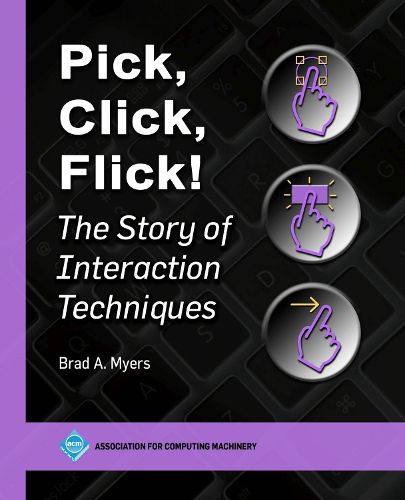Readings Newsletter
Become a Readings Member to make your shopping experience even easier.
Sign in or sign up for free!
You’re not far away from qualifying for FREE standard shipping within Australia
You’ve qualified for FREE standard shipping within Australia
The cart is loading…






This title is printed to order. This book may have been self-published. If so, we cannot guarantee the quality of the content. In the main most books will have gone through the editing process however some may not. We therefore suggest that you be aware of this before ordering this book. If in doubt check either the author or publisher’s details as we are unable to accept any returns unless they are faulty. Please contact us if you have any questions.
This book provides a comprehensive study of the many ways to interact with computers and computerized devices. An "interaction technique" starts when the user performs an action that causes an electronic device to respond, and includes the direct feedback from the device to the user. Examples include physical buttons and switches, on-screen menus and scrollbars operated by a mouse, touchscreen widgets, gestures such as flick-to-scroll, text entry on computers and touchscreens, interactions with conversational agents such as Apple Siri, Google Assistant, Amazon Alexa, and Microsoft Cortana, and adaptations of all of these for people with disabilities.Beginning with a history of the invention and development of interaction techniques, the author goes on to describe the various approaches in use today, continuing with a discussion of the state-of-the-art research that is driving the development of novel approaches for the future. The book features summaries of interviews with some of the original inventors of interaction techniques, including David Canfield Smith (the desktop and icons), Larry Tesler (copy/paste), Ted Selker (IBM TrackPoint), Loren Brichter (Pull-to-Refresh), and many others. The author also describes how to use, model, implement, and evaluate new interaction techniques.
Pick, Click, Flick! is written for anyone interested in interaction techniques, including computer scientists and designers working on human-computer interaction, as well as implementers and consumers who want to understand and get the most out of their digital devices.
$9.00 standard shipping within Australia
FREE standard shipping within Australia for orders over $100.00
Express & International shipping calculated at checkout
This title is printed to order. This book may have been self-published. If so, we cannot guarantee the quality of the content. In the main most books will have gone through the editing process however some may not. We therefore suggest that you be aware of this before ordering this book. If in doubt check either the author or publisher’s details as we are unable to accept any returns unless they are faulty. Please contact us if you have any questions.
This book provides a comprehensive study of the many ways to interact with computers and computerized devices. An "interaction technique" starts when the user performs an action that causes an electronic device to respond, and includes the direct feedback from the device to the user. Examples include physical buttons and switches, on-screen menus and scrollbars operated by a mouse, touchscreen widgets, gestures such as flick-to-scroll, text entry on computers and touchscreens, interactions with conversational agents such as Apple Siri, Google Assistant, Amazon Alexa, and Microsoft Cortana, and adaptations of all of these for people with disabilities.Beginning with a history of the invention and development of interaction techniques, the author goes on to describe the various approaches in use today, continuing with a discussion of the state-of-the-art research that is driving the development of novel approaches for the future. The book features summaries of interviews with some of the original inventors of interaction techniques, including David Canfield Smith (the desktop and icons), Larry Tesler (copy/paste), Ted Selker (IBM TrackPoint), Loren Brichter (Pull-to-Refresh), and many others. The author also describes how to use, model, implement, and evaluate new interaction techniques.
Pick, Click, Flick! is written for anyone interested in interaction techniques, including computer scientists and designers working on human-computer interaction, as well as implementers and consumers who want to understand and get the most out of their digital devices.